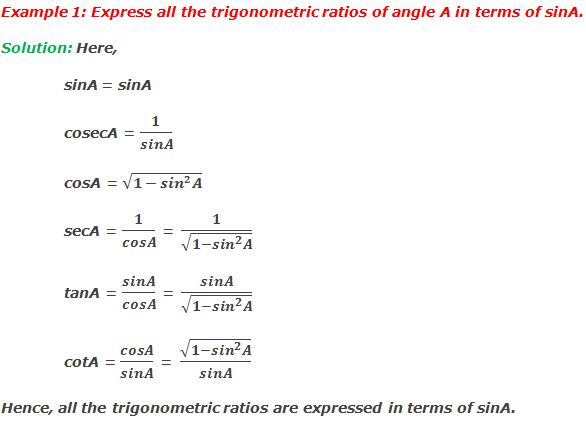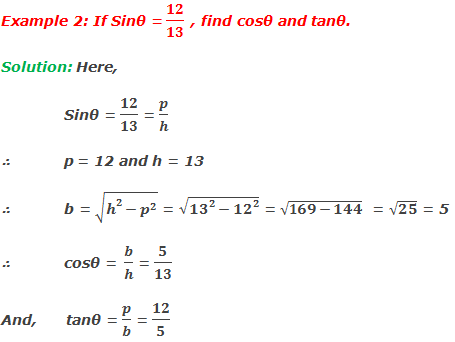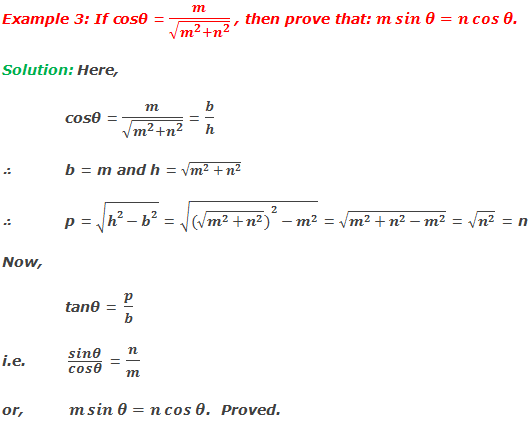Conversion of Trigonometric Ratios
There
are six trigonometric ratios. If one of them is known, the remaining five can
be obtained by the conversion of trigonometric ratios. If we know any one of the
trigonometric ratio, then the rest can be converted in terms of that known
ratio. This can be done by using either of the following two methods:
(a) Using basic
trigonometric relations
(b) Using Pythagoras' theorem
********************
10 Math Problems officially announces the release of Quick Math Solver and 10 Math Problems, Apps on Google Play Store for students around the world.
********************
********************
Lets study the following worked out examples:
Example 4: If 3Sinθ + 4cosθ = 5, show that cosθ = 4/5.
Solution: Here,
3sinθ + 4cosθ = 5
or, 5 – 4cosθ = 3sinθ
Squaring both sides, we get
25 – 40cosθ + 16cos2θ =
9sin2θ
or, 16cos2θ – 40cosθ + 25 = 9(1 –
cos2θ)
or, 16cos2θ – 40cosθ + 25 = 9 – 9cos2θ
or, 25cos2θ – 40cosθ + 16 = 0
or, (5cosθ – 4)2 = 0
or, 5cosθ – 4 = 0
or, 5cosθ = 4
or, cosθ = 4/5. Shown.
Example 7: If
tanA + cotA = 3, prove that tan2A + cot2A = 7.
Solution: Here,
tanA + cotA = 3
Squaring both sides, we get
tan2A + 2tanA.cotA + cot2A
= 9
or, tan2A + 2×1 + cot2A =
9 [∵ tanA × cotA = 1]
or, tan2A + 2 + cot2A = 9
or, tan2A + cot2A = 9 – 2
or, tan2A + cot2A =
7. Proved.
You can comment your questions or problems regarding the conversion of trigonometric ratios here.









0 comments: